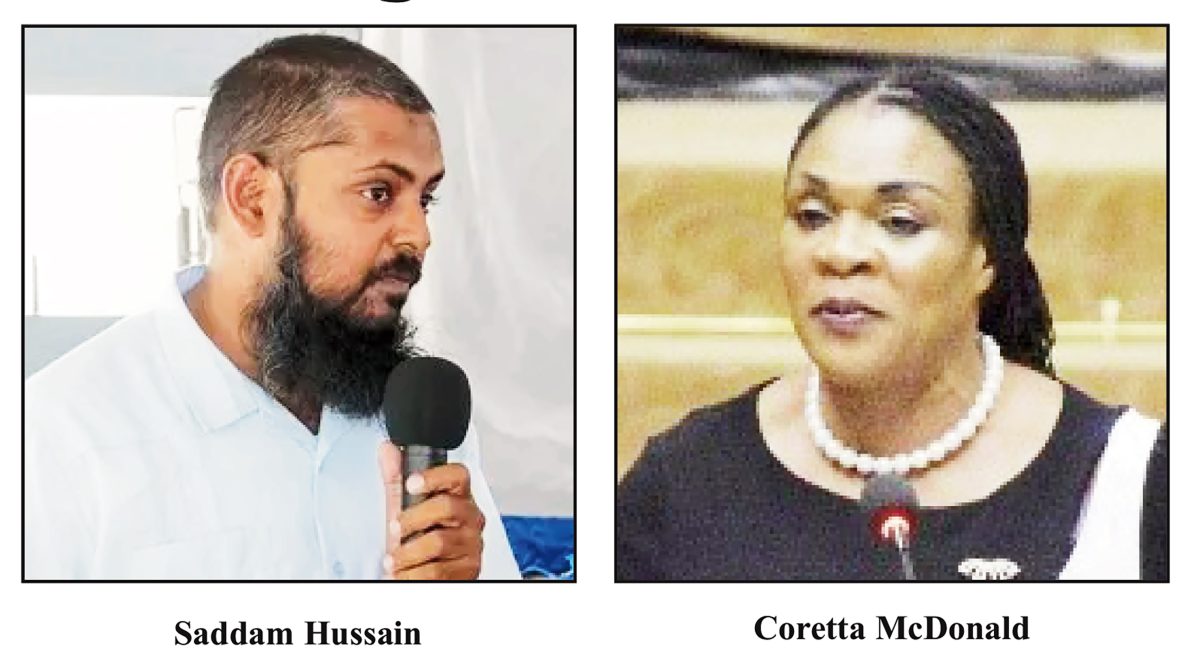Following the recent incident involving Venezuelan students at Queenstown Secondary School, General Secretary of the Guyana Teachers’ Union, Coretta McDonald, and Chief Education Officer, Saddam Hussain have both shared their perspectives on the issue.
While emphasizing the importance of recognizing and addressing the unique needs of foreign students, particularly those who may not speak English fluently, McDonald pointed out that the majority of teachers are not trained to deal with language barriers or other issues faced by foreign students. This she said then leads to frustration and misunderstandings in the classroom. The General Secretary stressed the need for more resources, including floating teachers who can assist with language translation and support for these students.
“We are still handicapped because the majority of our teachers, 99% of our teachers are not trained [in] and they don’t know Spanish. So, when the children come into school, it’s like the slow learners. You have a class with 35. Everybody at their own learning rate… but at the end of the day, everybody is being taught at the same time. So, it’s the same thing with our children, the learners who come who are Spanish speaking and they come into a class, where 99.99% of that class, they are English speaking. And so you as the specialist teacher, especially the secondary school, you are the specialist teacher. You have your syllabus to complete and so if every time during your 35-minute period, you have to take 10 minutes out of that time lot to explain this to this child and explain that to the child and then something else again to the child, you see what is happening to your class there… Your class is 10 minutes out every period, and many teachers are not prepared to do that. And so, in these instances, we have to ensure that we have the relevant persons who are speaking Spanish and this is where the GTU’s recommendation of having floating teachers in our system [comes in]. {When] we have the floating teachers and the teachers who can speak more than one language then you don’t have a difficulty when you have a class,” she said at length.
On the issue of bullying and fights, McDonald pointed out that in most cases these incidents, though they may originate in school, end up taking place outside of the schools where teachers have no control. Added to this, she said teachers are not trained to recognize when such occurrences are taking place.
“Yes, what in that instance, or in those instances, teachers have no control over what happens. If the children decide to fight at the park, or two corners away from the school teacher, they got no control over that… Teachers are not trained to recognize these, these symptoms of autism, or bullying… And that’s why very often, you’ll find these children get away with it,” she explained.
Meanwhile, when asked about the language barrier, Hussain highlighted the initiatives taken by the Ministry of Education to address the same for migrant students. He mentioned the implementation of ESL (English as a Second Language) classes in schools with high migrant populations, aimed at helping students improve their English proficiency.
“The Ministry of Education already has a system in place for this. There are a number of afternoon classes where we are teaching ESL (English as a second language) to the migrant students. That’s happening at several schools in Region Three, Region Four and so on where the migrant population are. So that is already happening that has been happening for nearly a year now,” he said.
The CEO also mentioned plans to expand these programmes and make them mandatory for migrant students to attend, to ensure better support and integration into the education system.
“The amount of time the number of classes have been expanded this year, and we will continue to expand as long as we have a migrant need. What I think has to happen is that we have to say that it’s mandatory for them to attend. We have not said that as yet. What we have done is to cajole and encourage the students to only migrant students to attend these classes”.
When questioned on the status of the Venezuelan student, Eliannys, in terms of her returning to the school, Hussain noted that another meeting with the family is forthcoming, and she will possibly be transferred to a school closer to her home.
The issue has sparked discussions on the challenges faced by foreign students in the education system and highlighted the need for better support and resources for these students.






